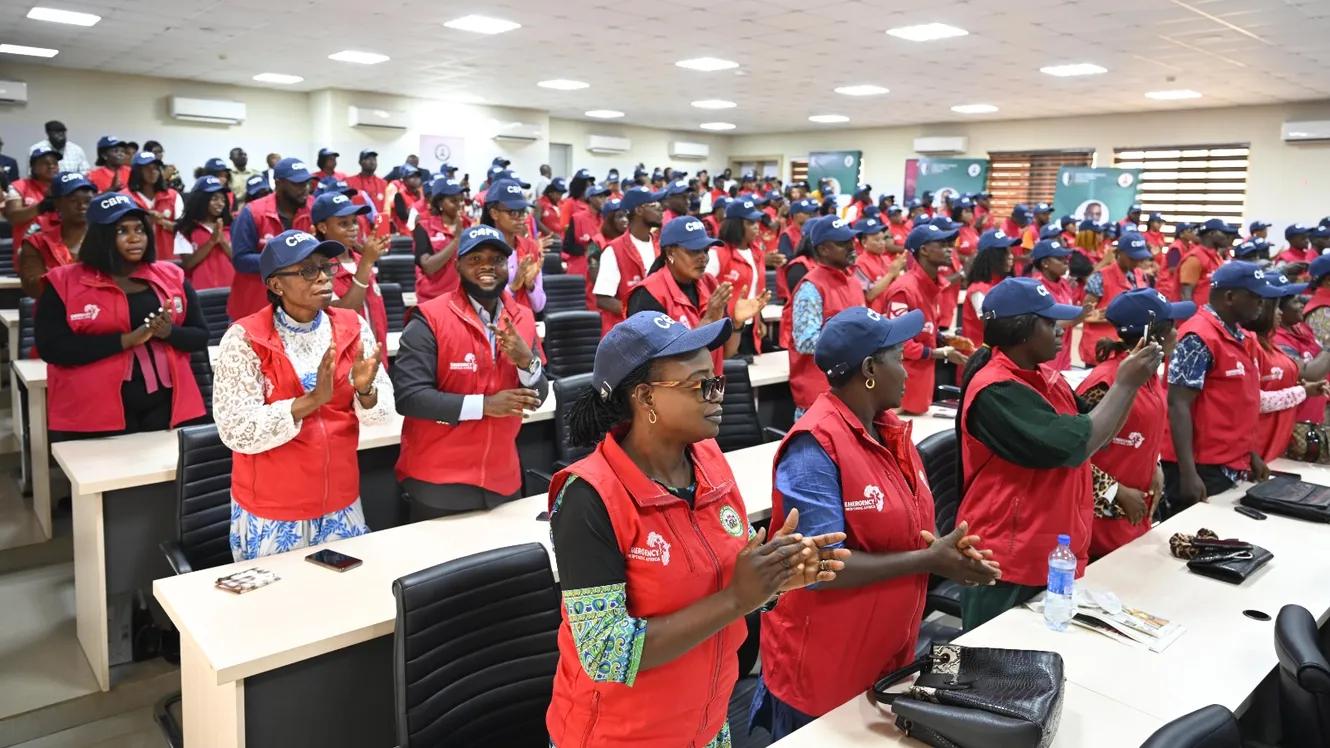Benin
Health
Training dogs to detect breast cancer, a method for screening disadvantaged women in Benin
Impact
News and Insights
The Nigerian social enterprise Emergency Response Africa, in collaboration with the Edo State Government, proposes to create a network of trained community-based first responders to deliver immediate first aid to emergency victims at the scene of an emergency, reducing the number of preventable deaths in Nigeria. FID supports the pilot of this network of community-based first responders, who will be dispatched using a technology-based solution that enables trained responders to assist victims in minutes and deliver life-saving emergency care.
Project ported by:
It is estimated that 54% of deaths occurring in lower middle-income countries are due to conditions that can be addressed by pre-hospital and emergency medical care (Debas et al., 2015). In Nigeria, out of the 2.4 million annual deaths, at least 1.2 million of those fatalities could potentially have been prevented by an efficient emergency medical service system.
Appropriate emergency care is therefore essential. In February 2022, the Federal Ministry of Health in Nigeria launched the National Emergency Medical Service and Ambulance System (NEMSAS), a pilot project to enable state levels to implement emergency medical support nationwide. However, state governments face a lack of trained emergency responders and coordination difficulties.

The Nigerian social enterprise Emergency Response Africa (ERA) has prototyped and tested at a small scale a technology-based solution that enables trained responders to assist the victim in minutes and deliver emergency care. Victims and by-standers can request help via a toll-free phone call or a mobile application developed by ERA. The system then analyses the case and dispatches the most appropriate responders based on their location, training, access to vehicle, and equipment. Patients who need advanced care will be handed over to existing state-run ambulances and hospitals for further care.
While this first pilot focused primarily on prototyping and testing the set of mobile and web applications that connects emergency victims, first responders, ambulances and hospitals, the objective of the current pilot is to bring data-informed answers on the effectiveness of training members of the community as first responders and its results on patient outcomes.
FID’s Stage 1 funding will allow Emergency Response Africa, in partnership with the Edo state government, to pilot the recruitment and training of 170 volunteer community-based first responders in support of existing state-run ambulances and hospitals. This pilot project will collect preliminary data on the effectiveness of care provided by first responders as well as within state services. In addition, these volunteer first responders will be tasked with encouraging patients to enroll in public health insurance.

During the pilot phase, 1,516 calls were handled, with a response rate of 88.5%. A total of 167 Community-Based First Responders (CBFRs) were trained and deployed; 74% of which remained active at endline and became more visible and trusted within communities than formal EMS providers.
However, 90% of patients still arrived at health facilities through non-EMS means, notably due to the persistence of negative cultural beliefs, as well as the high cost of CBFR and ambulance interventions, with a combined average cost of ₦173,875 (approximately $147). Limited insurance coverage has not been sufficient to address this issue.
The organization currently is exploring new avenues for scaling up and continuing to learn from their multiple programs, namely around obstetric emergency care, in other states.
Projects
Projects funded by FID